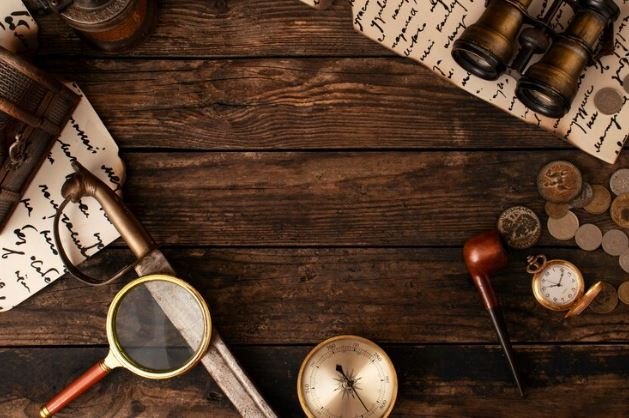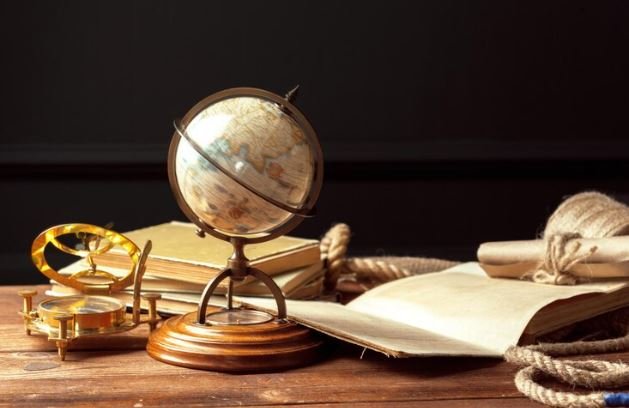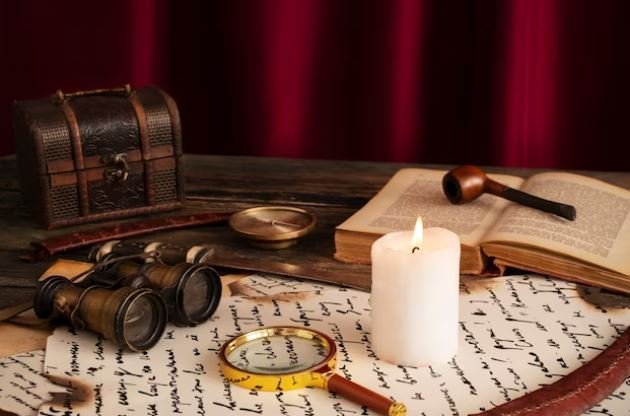Humans are inherently curious about our origins and the stories of those who came before us. The study of ancestry allows us to delve into the rich tapestry of our past, uncovering the secrets of our lineage and understanding the complex web of connections that make us who we are.
By tracing our ancestors, we can gain valuable insights into our cultural heritage, family traditions, and even our genetic makeup. This comprehensive study of ancestry holds immense significance, as it provides us with a sense of identity and belonging and sheds light on our shared human history.
The importance of studying ancestry
Studying ancestry is not merely an exercise in nostalgia or curiosity; it holds great importance for individuals and society. We can develop a stronger sense of self and identity by understanding our roots. Knowing where we come from gives us a solid foundation to build our lives and make informed decisions.
Additionally, studying ancestry enables us to connect with our extended family and forge meaningful relationships with relatives we may not have otherwise known existed. This connection to our past fosters a sense of belonging and community, which is crucial for our well-being.
Furthermore, studying ancestry allows us to preserve and celebrate our cultural heritage. Our ancestors played a vital role in shaping the traditions, customs, and values passed down through generations.
By exploring our ancestry, we can gain a deeper appreciation for the richness and diversity of our cultural tapestry. This knowledge enriches our personal lives and contributes to the broader understanding and appreciation of different cultures within society.
Methods and tools for studying ancestry
In the digital age, we are fortunate to have many methods and tools for studying ancestry. One of the most widely used approaches is genealogy, which involves tracing and documenting family lineage. Genealogical research often relies on historical records, such as birth certificates, marriage licenses, and census data, to piece together the puzzle of our ancestry. This meticulous process requires patience, attention to detail, and the ability to navigate vast information.
Another powerful tool in studying ancestry is DNA testing. By analyzing our DNA, we can uncover ancestral origins, connect with distant relatives, and discover previously unknown family tree branches. DNA testing has revolutionized the field of ancestry research, offering a scientific and objective means of understanding our genetic heritage.
Genealogy and its role in studying ancestry
Genealogy is a fundamental aspect of studying ancestry, as it allows us to trace our family lineage back through the generations. It involves collecting and analyzing various records, such as birth, marriage, death certificates, census data, and immigration records. These documents are crucial pieces of the puzzle, enabling us to construct a comprehensive family tree.
Genealogical research requires a meticulous and systematic approach. It involves gathering information from various sources, organizing it coherently, and verifying its accuracy through cross-referencing. Genealogists often rely on online databases, libraries, and archives to access historical records and primary sources.
By engaging in genealogical research, we learn to uncover the names and dates of our ancestors and their stories and experiences. We gain a deeper understanding of their lives, struggles, and triumphs, which in turn helps us to understand ourselves better. Genealogy provides a tangible link to our past, connecting us to those who came before us and shaping our present and future.

DNA testing and its impact on studying ancestry
In recent years, DNA testing has emerged as a powerful tool in the study of ancestry. By analyzing our genetic material, we can gain insights into our ancestral origins and discover connections to distant relatives. DNA testing compares specific markers in our DNA to a vast database of genetic information. This process allows us to identify genetic matches and determine our genetic heritage with high accuracy.
DNA testing can provide valuable information about our ancestry that may not be apparent through traditional genealogical research. It can reveal unexpected ethnic or regional origins, uncover previously unknown relatives, and even provide clues about migration patterns and historical events that shaped our family history.
It is important to note that DNA testing is just one piece of the puzzle when studying ancestry. It should be used with other research methods, such as genealogy and historical records, to paint a comprehensive picture of our heritage. DNA testing offers a scientific and objective perspective on our ancestry, complementing the rich stories and personal connections that genealogical research provides.
Historical records and their significance in studying ancestry
Historical records play a crucial role in studying ancestry, providing valuable insights into the lives of our ancestors. These records can take various forms, including birth, marriage, death certificates, census data, immigration records, and military service records. Each document serves as a window into the past, offering glimpses into our forebears’ lives, relationships, and experiences.
Through careful analysis of historical records, we can piece together the puzzle of our ancestry. We can trace the migrations of our ancestors, understand the societal and cultural contexts in which they lived, and gain a deeper appreciation for the challenges they faced. Historical records provide a tangible link to the past, allowing us to connect with those who came before us and honor their memory.
While historical records are invaluable resources, they are not without limitations. Many records have been lost or destroyed over time, making it challenging to trace specific lineages. Additionally, historical records may contain errors or incomplete information, requiring researchers to exercise caution and cross-reference multiple sources.
Despite these challenges, historical records remain a vital tool in studying ancestry, offering a treasure trove of information waiting to be discovered.
Cultural and societal factors in studying ancestry
Studying ancestry is not only about tracing names and dates but also about understanding the cultural and societal factors that shaped our ancestors’ lives. Exploring our cultural heritage allows us to appreciate better the traditions, customs, and values passed down through generations.
Cultural factors, such as language, religion, and cuisine, provide valuable insights into our ancestral roots. By learning about the languages spoken by our ancestors, we can connect with our linguistic heritage and explore the rich tapestry of human communication. Similarly, understanding our ancestors’ religious beliefs and practices can shed light on our spiritual journey and provide a sense of continuity across generations.
Societal factors, such as historical events, social structures, and economic conditions, also play a significant role in studying ancestry. By examining the historical context in which our ancestors lived, we can better understand the challenges they faced and the opportunities they pursued.
The study of family lineage and its relevance
The study of family lineage is a fundamental aspect of studying ancestry. It involves tracing and documenting the relationships between individuals across generations creating a comprehensive family tree or pedigree chart. By exploring our family lineage, we can gain a deeper understanding of our familial connections, uncover hidden stories and relationships, and forge meaningful connections with past and present relatives.
Studying family lineage allows us to appreciate the interconnectedness of our lives and each individual’s role in the tapestry of our ancestry. It helps us understand the complex web of relationships that make up our family tree, including direct ancestors and siblings, cousins, and extended family members.
This broader perspective enables us to develop a sense of compassion, empathy, and gratitude for the generations that came before us. The study of family lineage is also relevant in a practical sense. It can help us to identify potential health risks or genetic predispositions that may be passed down through the generations.

Challenges and limitations in studying ancestry
While the study of ancestry is a fascinating and rewarding endeavor, it is not without its challenges and limitations. One of the most significant challenges is the availability and accessibility of historical records.
Many documents have been lost, destroyed, or never created, making it challenging to trace specific lineages. This lack of information can be particularly pronounced for marginalized or underrepresented communities whose histories have been overlooked or intentionally erased.
Another challenge is the potential for errors or discrepancies in historical records. Birth dates may be recorded incorrectly, names may be misspelled, and relationships may be misattributed. Researchers must exercise caution and cross-reference multiple sources to ensure the accuracy of their findings.
Additionally, cultural and societal factors can present challenges in studying ancestry. Historical events such as wars, political upheavals, and forced migrations can disrupt family connections and make it challenging to trace lineages. Societal structures, such as slavery or the caste system, can further complicate the study of ancestry by creating barriers and gaps in the historical record.
Future directions in the study of ancestry
The study of ancestry is a dynamic field that continues to evolve and expand. As technology advances and new research methods emerge, the possibilities for uncovering our ancestral past become even more significant. One area of future development is integrating traditional genealogical research with DNA testing. By combining these approaches, researchers can paint a more comprehensive picture of our ancestry, incorporating the stories and the science behind our genetic heritage.
Another exciting direction is using digital technologies to preserve and share ancestral information. Online databases, digital archives, and collaborative platforms enable researchers and individuals to access and contribute to the collective knowledge of ancestry. This democratization of information opens new avenues for discovery and allows for greater collaboration among researchers and enthusiasts alike.
Furthermore, the study of ancestry is becoming increasingly global in scope. As people migrate and families become more diverse, the study of ancestry expands beyond national borders and cultural boundaries. This broader perspective allows us to explore the connections and shared heritage that unite us as a global community.
Conclusion
The comprehensive study of ancestry is a significant and enlightening endeavor. By tracing our roots, we gain a greater understanding of our personal and cultural identity. The methods and tools available to us, such as genealogy and DNA testing, provide valuable insights into our ancestral origins and connect us with relatives we may not have otherwise known existed.
Studying ancestry allows us to appreciate the rich tapestry of human history and understand our place within it. It fosters a sense of belonging, community, and interconnectedness, essential for our well-being and personal growth. Furthermore, studying ancestry provides a tangible link to our past and a foundation to build our future.


